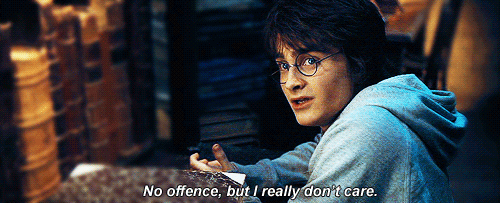Happy Friday!
If you have somehow avoided my relentless propagandising for Difficult Women (how?) then you can listen to an abridged version on Radio 4 as Book of the Week next week. It’s read by me, and for some reason I acquiesced to the producer’s request to “unleash my inner actress” and have done a posh voice for Lady Constance Lytton in episode 2.
Incidentally, if you’ve already read and enjoyed Difficult Women, please do leave an Amazon review***. I’ve just finished my new book proposal and I’d quite like someone to fund my decadent millennial lifestyle while I write it, so every little helps.
Helen
*** If you hated it, don’t bother, obv.

You Can Check Out Of Twitter, But You Can Never Leave
My old colleague Raf Behr has a new podcast, looking at the psychological side of politics. We talked about negativity bias, smartphones and why information is now too much like Marks and Spencers’ delicious iced buns. I thought my relationship with Twitter was bad, but Raf says it contributed to his heart attack last year. Listen here.

Jon Stewart Is Back To Weigh In (New York Times)
Maybe it’s better, because you’ve been eloquent during times of crisis in the past, just to ask what you’ve been thinking about and seeing in the aftermath of George Floyd’s killing?
I’d like to say I’m surprised by what happened to him, but I’m not. This is a cycle, and I feel that in some ways, the issue is that we’re addressing the wrong problem. We continue to make this about the police — the how of it. How can they police? Is it about sensitivity and de-escalation training and community policing? All that can make for a less-egregious relationship between the police and people of color. But the how isn’t as important as the why, which we never address. The police are a reflection of a society. They’re not a rogue alien organization that came down to torment the black community. They’re enforcing segregation. Segregation is legally over, but it never ended. The police are, in some respects, a border patrol, and they patrol the border between the two Americas. We have that so that the rest of us don’t have to deal with it. Then that situation erupts, and we express our shock and indignation.
Jon Stewart was my moral lodestar during the 2000s. He always seemed so certain. But outright opposition to Bush suited him better than the Obama years, and he’s now clearly ambivalent about the Daily Show’s approach and legacy (the correct resting state for any journalist or satirist). He still retains his wonderful knack for framing problems, though, as above. Whether you agree or not with Ta-Nehisi Coates’s The Case for Reparations, it’s hard to come away from it without realising just how deeply segregation is woven into American law, through practices such as “redlining” (refusing to lend to black Americans to keep them from buying homes).
Sometimes the discrimination was even more overt than that: as Stewart mentions later in the interview, some housing developments made it an explicit condition of purchase that homes could not be resold to African-Americans. (Robert Moses, the man who built New York, hated its minority residents, something which reflected in the city’s urban planning.)
All this reminds me of a sharp observation that an American friend made this week. Upper middle-class white US liberals seem very happy to post black squares on Instagram, or attend corporate diversity seminars, but how many of them are comfortable sending their kids to racially mixed public (state) schools, or living in racially mixed neighbourhoods?

The Time Has Come to Let Go of Harry Potter***
“Pottermore personality quizzes determined that my Patronus was a silver cat and I was owed a yew wand from Ollivander’s, making me feel seen. . . Thanks to my English Lit degree, I can certainly summon a convincing case that Harry Potter should be appreciated independently of Rowling. My instinct is always to see a work of art, no matter what it is, as its own thing. Once you’ve created something and put it out into the world, it’s no longer yours. It takes on a life of its own; it’s like having a literary child.”
I am tempted to say that the overwrought tone is the worst thing about all these “Harry Potter Is Ruined For Me Now” essays, but actually it’s the attempt to shoe-horn references to wizards into painfully earnest discussions of oppression. “Like Remus Lupin at full moon, JK Rowling has become something monstrous.” “Her hate-filled screed has affected me more deeply even than the unexpected death of Cedric Diggory minutes after clutching the Triwizard Cup which turned out to be a Portkey.” “Like Moaning Myrtle in the girls’ bathroom, I too am crying today.”
Now, I don’t like to dunk on the young journalists writing these pieces, but I do want to dunk on their editors. Why are we, as an industry, encouraging twentysomethings to write navel-gazing me-me-me blogs using student journalism phrases like “atop the zeitgeist” in exchange for crap money (and, often, internet hate)? (I know why: they’re cheap.)
There’s a whole generation of mostly white, mostly middle class journalists who - in lieu of solid reporting and editing positions - have only managed to stay in the media by mining their personal experiences for comment pieces. Like White Fragility being top of the NYT bestselling lists, there is a trend for marginalised groups getting turned into something for privileged people to cry over, without handing over the mic to the actual people affected - or even sending journalists out to hear from those communities and report their stories. This type of comment journalism is just Woke How To Spend It, only it’s the opinions which are aspirational, not the chair covers.
It does not feel like a coincidence that journalism has become increasingly culture-war-obsessed as its economics have changed and its routes to entry have become more hostile to anyone outside the upper middle class. No one should be writing comment pieces which say “thanks to my English Lit degree”, because it reveals that the implied reader is another twentysomething with a degree from a redbrick university ****. British audiences are incredibly attuned to class signals, and even “lit” instead of “literature” rings the posh bell. I don’t blame the writers. I blame the editors. And I should know, because I have been one of them.
*** no shit, you’re like 25 (this is a mean joke from someone whose favourite author is still Terry Pratchett)
**** I know the phrase “implied reader” thanks to my English Lit degree
Quick Links
“Living in the middle of London with two young children, I needed to be more pragmatic. I gave up one spare room to bring our nanny into our South Kensington home and prepared the other for a friend who needed to move to be isolated from her husband, a surgeon. . . Conscious of my responsibility towards the additional souls on board, I took stock of what resources I could call on. Trebling our usual order from the Freddie’s Flowers delivery service was the obvious place to start.” Coronavirus, the great leveller. (Financial Times)
The guy who did the Only Fools And Horses theme tune in the style of Elton John has a whole YouTube channel. Joy! Here’s Pulp Dangermouse. And Michael Jackson Dad’s Army. (Thanks to Dorian Lynskey.)
Good post by Alex Hern about QAnon, and AI curation.
“Romano, who once made headlines for writing a review in which he imagined raping the author of the book”. Vulture goes inside the board meltdown at the National Book Critics Circle.
“Mrs Duffy”, a teacher who follows me, has created a Year 9 listening and speaking unit based around Difficult Women. She’s made all the resources available here for anyone else who wants to use them for remote learning.
“I think they’re having an identity crisis because there’s only so many Buzzfeed quizzes you can take until you really have to know yourself. They try to gatekeep 90s culture. I’ve never seen an episode of Friends and I don’t have any intentions to do so.” This piece on what Gen Z think of millennials has cheered me right up. Get over it, grandad.

Me when reading the internet most days.


